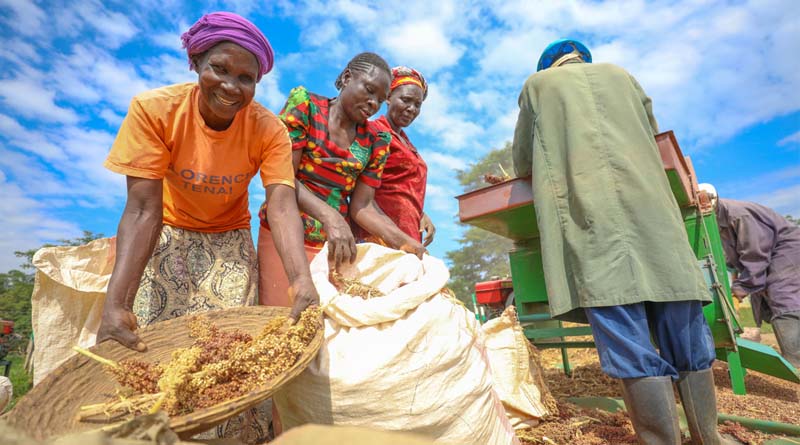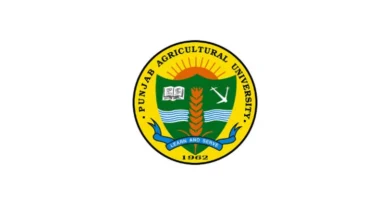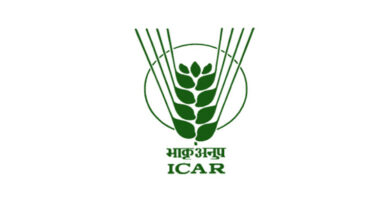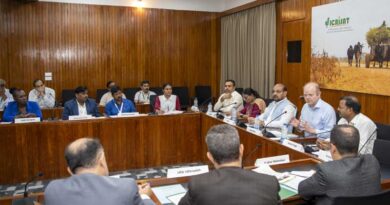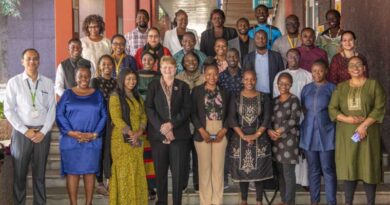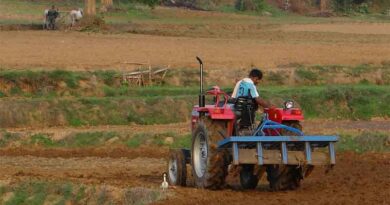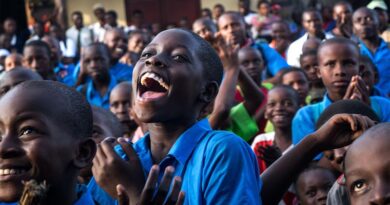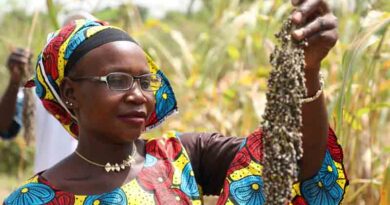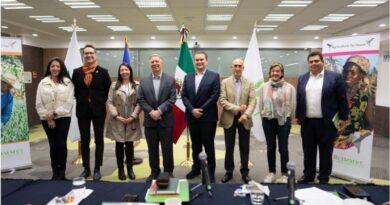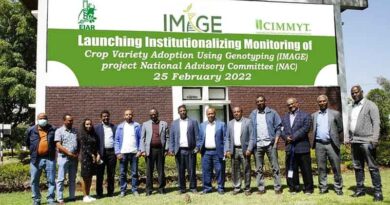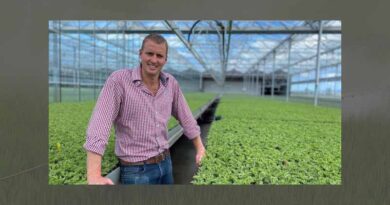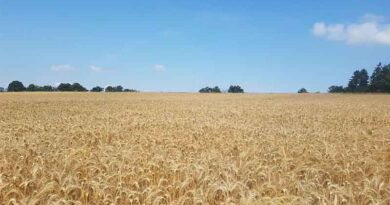Revolutionizing Agriculture Together: India-Africa Unite for Farm Mechanization in Ludhiana
Bringing Together Indian and African Experts, Researchers, Manufacturers, and Policymakers to Discuss Mechanization
30 January 2024, Ludhiana: The India-Africa Dialogue on Farm Mechanization, held in January at the Ludhiana Exhibition Hall in India, brought together a diverse group of experts, practitioners, researchers, machinery manufacturers, financial institutions, and policymakers from both India and various African nations to foster South-South learning on farm mechanization.
The event was jointly organized and represented a collaborative initiative by institutions including the International Crops Research Institute for the Arid and Semi-Arid Tropics (ICRISAT), the All India Agricultural Machinery Manufacturers Association, the Indian Council of Agricultural Research (ICAR), the Ministry of Agriculture and Farmers Welfare of the Government of India, Punjab Agricultural University (PAU), CGIAR- Excellence in Agronomy (EiA), and Udan Media and Communications in Ludhiana.
The dialogue aimed to address the challenges and opportunities related to agricultural mechanization in Africa and focused on developing, refining, adapting, and targeting scale-appropriate mechanization solutions.
The participants discussed the need for context-specific, value-chain mechanization solutions to enhance food security, increase productivity, and reduce environmental footprints.
Director General of ICRISAT, Dr Jacqueline Hughes said that the India-Africa Dialogue on Farm Mechanization highlights the transformative impact of sustainable agricultural mechanization on dryland farming communities.
“Mechanization contributes to positive outcomes, including increased productivity, reduced costs, and minimised post-harvest losses as but some examples.
“Events like these are crucial to promote cooperation among nations in the Global South, to enhance technology transfer, food security, productivity, and environmental sustainability,” said Dr Hughes.
Dr ML Jat, Global Research Program Director for Resilient Farm and Food Systems at ICRISAT highlighted the commonalities between India and Africa in terms of agriculture, emphasizing the potential for co-learning.
“One of the key areas of that learning is related to increased agricultural mechanization at farm level and in the agrifood value chain that are economically, environmentally and socially sustainable.
“In this context, use of agricultural mechanization within a sustainability framework can bring a wide range of benefits through time efficiency speeding up operations in the food production process, increase yields, reduce production costs, increase cropping intensity, increase efficiency of production inputs, reduce post-harvest losses and reduce drudgery of farm workers” said Dr Jat.
During panel discussions, participants emphasized the importance of sustainable mechanization, which takes into account economic, environmental, and social aspects. They also highlighted the advantages of mechanization, such as saving time, boosting yields, cutting production costs, increasing cropping frequency, and enhancing the use of production resources.
The chair of the panel, VN Kale, who serves as the Commissioner of Mechanisation in the Ministry of Agriculture & Farmers Welfare, Government of India, emphasized that dialogues offer significant opportunities for Africa.
He encouraged participants to apply the lessons learned immediately for implementation. Furthermore, he stressed that bilateral partnerships would be crucial for promoting scale-appropriate farm mechanization in Africa.
“India through its partners will play a key role in supporting Africa in mechanization, strengthening the process of visiting experts to African countries and arranging seminars/workshops for dealers and manufacturers in Africa.
“South-south cooperation is a key framework for knowledge exchange and India is ready to support and strengthen mechanization in Africa” said” VN Kale.
African representatives, including Saidi Mkomwa from the Africa Conservation Tillage Network, highlighted the significance of mechanization in addressing food security challenges, especially in the face of increased population and climate change.
“Africa is facing challenges like increased population and climate change. What we have learned here is critical in agricultural transformation.
“The African Congress on Sustainable Mechanization will be organized shortly in Africa. We request India to support this cause and use this opportunity to showcase the state-of-the-art scale appropriate Machinery suitable to Africa as a part of south-south collaboration.” said Mr. Saidi.
Patrick Ketiem, Director, Kenya Agriculture and Livestock Research Organization, emphasized the need for technology and knowledge beyond tractors and he challenged ICRISAT and its partners to upscale collaboration with the government on scale-appropriate mechanization primarily for inter-cultivation, processing, and post-harvest operations in the country.
Dalisto Varegeyi, Provincial Mechanization Director from Zimbabwe in his remarks noted that the Government of Zimbabwe is promoting mechanization suitable for large-scale farmers but he underscored the importance of focusing on smallholder farmers.
“The requirement for African countries is basically for seeding, harvesting, and aftercare as the latter accounts for almost 30-40 percent losses of food grain production every year.
“Gender-inclusive mechanization is required at the value chain level. Small-scale farmers do not need small machines but they need smart machines” said Mr Varegeyi.
Sekou Sala Guindo, Head of Mechanization in Mali, pointed out the low mechanization rate in Mali, where all field operations, including ploughing, seeding, and harvesting, are done manually. He highlighted the potential for significant farm mechanization in Mali due to its youthful agricultural workforce.
He expressed gratitude to ICRISAT and partners for their support in introducing appropriate tools and machinery to the country.
HS Sidhu, Principal Agricultural Engineer from Punjab Agricultural University, India, and HS Jat, Director of ICAR-Indian Institute of Maize Research, highlighted the advancements in mechanization in India that could benefit African farmers. Mr. Sarabjit Singh, the Secretary of the All India Agricultural Machinery Manufacturers Association, India, expressed readiness to introduce suitable machinery and engage in knowledge sharing in response to the panel’s discussion on the state of mechanization and challenges in Africa.
The dialogue concluded by discussing the mechanization status in India and Africa, finding cost-effective mechanization solutions for African farmers, and promoting partnerships between Indian and African stakeholders.
A key takeaway from the event was the commitment to enhance farm mechanization through collaboration between countries in the Global South.
Also Read: Brazil: Why did pesticide registrations decrease in 2023
(For Latest Agriculture News & Updates, follow Krishak Jagat on Google News)

